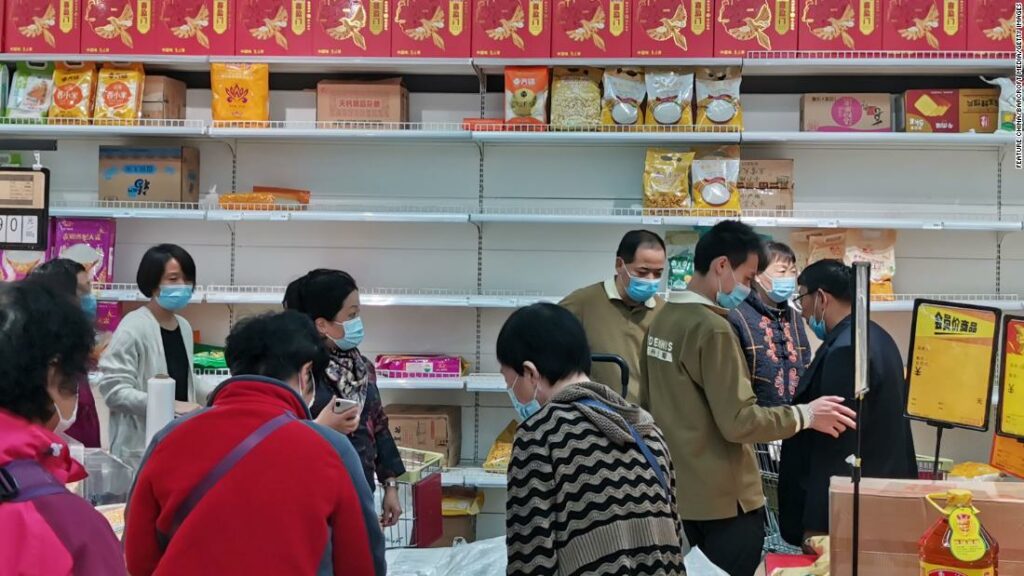Analysis: How a warning about food supply sparked panic buying in China

But the government’s latest attempt to head off concerns about pricing and supply appears to be spiraling out of control. A missive about But Monday’s directive has attracted the attention of everyday Chinese in a way that few other government notices have.In part, that appears to be because it includes rare language about the need for local authorities to encourage families to stockpile “daily necessities.” Even if the notice wasn’t intended for the average household to read, many online have seized on it as a personal warning. The government “didn’t even tell us to stock goods when the Covid outbreak erupted in early 2020,” Lam also pointed to several economic anxieties that may be contributing to the turmoil. This year’s energy crunch forced factories to suspend some production and triggered blackouts for households — problems that in some cases “happened without any prior notice from the government,” he said.”It reflects the anxiety of the people regarding further drastic rises in food [costs] and also a mistrust of the government,” Lam added. The Chinese government and some state media outlets have tried to allay fears about food shortages.Zhu Xiaoliang, a commerce ministry official, told state broadcaster CCTV this week that there’s plenty of supplies to go around. Zhu stressed that the directive was intended for local authorities.The Jiangsu Department of Emergency Management, meanwhile, acknowledged concerns about “emergency supplies” on its WeChat account Tuesday. But the agency said any recommendations for stockpiling are “normal” and intended to “improve the public’s awareness of disaster prevention.”The government’s commitment to a zero-Covid policy — even as countries around the world reopen and learn to live with the coronavirus — is also likely a factor. Just a single case can spur Chinese authorities into action, locking down entire areas and carrying out mass tests or quarantine requirements. Such measures “will likely impact residents going to shops, and also impact the operating hours of markets,” said Chenjun Pan, a senior analyst at Rabobank who researches agriculture in China.Wang Hongcun, an official with the Beijing Municipal Commerce Bureau, acknowledged last week that strict containment measures may be contributing to the rising cost of food, adding that the cost of transiting across regions could increase. He pointed out that the prices of some vegetables in the nation’s capital had soared 50% or more in October.Lam said Beijing is not likely to change course, either, meaning that cities have to prepare to endure potentially long lockdowns as the government tries to keep its coronavirus case count low.”This is a preparation for the fact that these lockdown conditions will continue, even though by and large, the total numbers for China are actually very low compared to other countries,” he added. “It’s unlikely that Beijing will stop this zero tolerance policy.”– CNN’s Beijing bureau contributed to this report.





